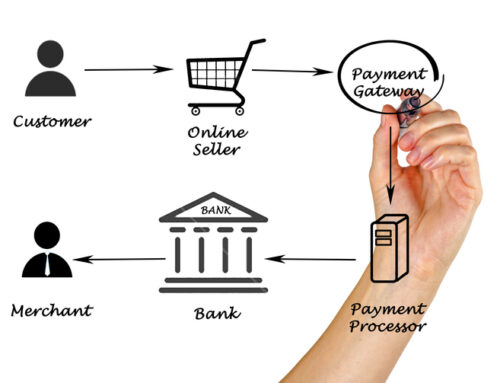With all you have to do in a day, have you ever wondered how you can improve your business productivity? All entrepreneurs are busy. If you’re a small business owner, especially if you’re working on your own, you have a lot to do. Between managing emails, helping customers, and making sure everything is running smoothly it’s no wonder you end most days wishing you had more time.
The key to being productive in business isn’t just about having more time. By managing your time more effectively, you will accomplish more. Here are seven tips to help you manage your time and improve your business productivity.
Identify Bottlenecks to Business Productivity
Bottlenecks are usually discussed in relation to production management. In this situation, a bottleneck is the slowest point in the production process. A production chain is only as efficient as its slowest process. All the rest of the processes must wait. So, if you run a production business, you may want to analyze your production chain. This will help you determine the slowest process and if there’s any room for improvement.
Bottlenecks can also occur in business systems and processes. Business systems and processes are your day today activities. Bottlenecks can occur at any point in your process. For example, if you hate paying bills and put them off as long as possible, but your accounting department needs them to complete your bookkeeping, you have a bottleneck in your accounting processes. Consider paying bills as soon as possible or assigning this task to someone else in your business.
Take Advantage of Technology
Thanks to technology, a lot of daily business tasks can be automated. If we continue with the bill-paying example, you can set up your bills to be automatically withdrawn from your business bank account. You may want to make a note in your calendar as to when bills are coming due though so you have enough funds to cover the payments.
Other tasks are better suited to semi-automation. The accounting app we use, Xero, is a good example of this. Xero automatically downloads transactions from your business bank accounts. Then it’s up to you or your bookkeeper to confirm and post those transactions. Not having to manually enter every line from your bank or credit card statement is a huge time-saver.
Schedule Your Time
This may seem like an obvious tip, but when you schedule things they tend to get done. When you enter something in your phone or write it down on a desk calendar, you are more likely to see the task and remember to do it. All those unforeseen tasks that come up during the day will interfere with your memory, so back it up with reminders.
Scheduling bill payments will hopefully remind you to pay the bills and move on, freeing you up for other activities. Scheduling tasks in batches is another way to be more productive. For example, does this sound familiar? As you’re checking your email, a staff member interrupts to ask a question. You forget you were replying to emails and start writing a report only to be notified by reception that your next client has arrived.
By scheduling uninterrupted time for email management and report writing, you will find you get a lot more done in less time because you don’t get interrupted. Scheduling can also be a great tool to help you focus on one thing at a time.
Focus on One Thing at a Time
Our brains are not set up to multi-task. Research shows that when we try to multitask, we actually accomplish less and miss more. By focusing on one thing at a time, you are able to complete more as you cycle through your tasks than if you were trying to do all the things at the same time.
There are two main ways to focus on one thing at a time: schedule specific tasks for specific times throughout the day, or put the blinders on and do one task until it’s complete. The former method allows you to achieve forward movement on more than one task at a time and the latter method works well for meeting deadlines.
Make a To-Do List at the End of the Day
Many people have a running to-do list that they keep adding to and (hopefully) removing from. These lists tend to keep growing and can become overwhelming and unmanageable. At the end of your work day, try making a list of three to five priority tasks for the next day.
A list like this will feel much more manageable, and you’ll feel good when all the tasks are crossed off at the end of the day. Be sure to cross-reference this list to your master list (if you have one) and remove any completed tasks from it. Try making these short lists at the end of a day when you feel overwhelmed with what needs to get done.
Reduce Time-Wasters
Is everything that you do in a day necessary? For example, could you send an email instead of organizing a meeting? Meetings can be huge time-wasters if they aren’t necessary. Other time-wasters in business include:
- Having to deal with interruptions (as previously mentioned),
- Taking frequent breaks,
- Wasting time looking for things, and
- Doing someone else’s work for them.
It may take some time to train your staff not to interrupt you during certain times of the day, but it will be well worth it. The solution for taking less breaks all comes down to why you are taking the break. Are you procrastinating? Do you need a coffee refill? Were you interrupted again?
Having an organized work space will help you find things faster. File papers rather than letting them pile up on your desk. If you are doing someone else’s work for them, you need to determine why. Are they a staff member that hasn’t been properly trained or just aren’t getting it? Maybe you’re a solopreneur and it’s time to hire someone or outsource some of your tasks.
Outsource
Outsourcing tasks can free up time so you can get to the work you want to be doing rather than the work you have to do. But how do you know what to outsource? Start with the tasks that aren’t your specialty or you don’t enjoy. Outsourcing these will offer the most benefit to you.
Did you know we offer outsourced CFO and controller services? We can free you from all those monthly bookkeeping and accounting tasks you don’t like doing anyway. If this appeals to you, contact us to learn more.






